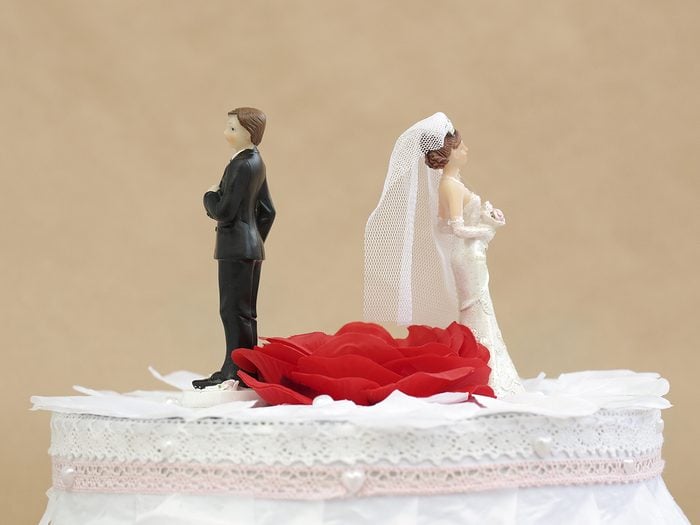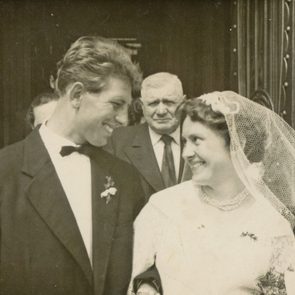The Real Reason Marriage is on the Decline Across Canada

We asked Lisa Strohschein, University of Alberta sociology professor and editor-in-chief of the journal Canadian Studies in Population, for her insights into the future of marriage.
Reader’s Digest Canada: The latest statistics show marriage is on the decline in Canada. Could “I won’t” be the new “I do”?
Lisa Strohschein: About 77 per cent of Canadian couples are married today, compared with an average of around 85 per cent in the 1980s. But if you look at the reasons behind the drop, it’s not a rejection of marriage so much as the path to getting married has become less direct. It used to be that you lived with your parents and then you got married, but now there are other options and obstacles. The decline of marriage rates has been the steepest in the 20-to-29 demographic: the average age for getting married for the first time has gone from roughly 23 years old in 1970 to 30 today. For the most part, these are people who do want to marry eventually—they’re just waiting.
Why the wait?
The American sociologist Andrew Cherlin talks about how marriage was once a cornerstone that marked the beginning of adulthood, whereas now it’s often a capstone. It’s what you do when other boxes—education, career, becoming a more fully realized version of yourself—have been ticked. In countries such as Norway and Sweden, this phenomenon is even more pronounced: almost one in five marriages occur after the couple has two children, which illustrates how marriage is a celebration of what has already been achieved, rather than what may be achieved in the future.
Canada ranks first among G7 countries for common-law relationships. What does that tell us?
A large part of that has to do with the popularity of common law in Quebec. Demographers trace this to the Quiet Revolution, when the Roman Catholic Church lost its power over the French-speaking population and paved the way for the abandonment of marriage from the 1960s onward. But the main reason, as I’ve pointed out, is that there are simply more options today.
How has the role of marriage changed?
From ancient times until not even 100 years ago, marriage was often a way of fortifying or consolidating power. Look at Game of Thrones! And it was an economic arrangement that allowed for the transfer of property from one man (a father) to another (a husband). Women expected men to provide food and shelter, and men expected women to maintain their homes. The other important purpose was bonding you to your kinship group at a time when society was communal. Now, society is more individualist, and marriage is a form of personal fulfillment. The idea of love as a relationship glue only became popular in the 19th century. Which is great, but what happens when the inevitable headwinds come? In the past, there was more of a “grin and bear it” philosophy, but now when you’re unhappy there is this sense of failure.
Given the stress of unrealistic expectations and the lack of economic necessity, what’s the point?
It’s about formalizing the commitment and celebrating that achievement in front of family and friends. If you look at the high uptake of marriage among LGBTQ2S+ couples following legalization, you can see that marriage isn’t going anywhere. Partly that’s about access to the same rights and legal protections, but love is the top reason.
You’ve researched whether gender impacts how a person benefits from being married. Does it?
The notion that heterosexual men derive greater benefits from marriage was first looked at in the 1970s, and it was true then. When a marriage was bad, the man had a professional life that could bring him satisfaction and success, whereas the woman was just stuck. As more opportunities have become available for women over time, this disparity has significantly decreased. The mental-health benefits of heterosexual marriage are now experienced equally by all genders.
Next, find out why nearly half of all separated couples give it another go.






